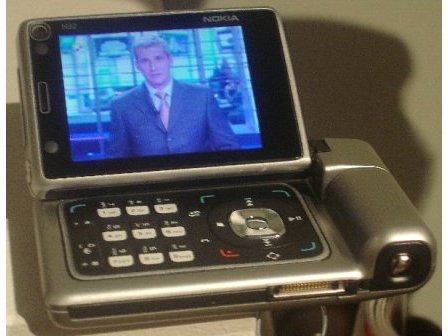FM radio: a threatened species?
Ofcom plans to free up analogue frequencies

FM radio could be shut down and replaced by mobile TV. That's the scenario discussed in Ofcom's latest report.
Standard analogue radio is a waste of valuable radio frequencies, according to communications regulator Ofcom . 300 local radio stations and five national channels use a 'patchwork' of frequencies on the FM band, Ofcom states in its 'The Future of Radio' report .
Ofcom believes the FM band could be used better for new technologies, such as TV for mobile phones and DAB digital radio.
The number of DAB radio listeners is increasing. This summer, DAB radio had a 16 per cent share of radio listeners and Ofcom predicts that number will rise to 90 per cent in 10 years' time. DAB digital radio is transmitted over a higher frequency band than FM radio, as explained in our DAB feature.
Losing numbers
Analogue radio is also losing listeners to pod radio (downloadable radio programs). Satellite radio is also likely to reach Europe. Satellite radio broadcasts paid-for programmes directly to specially-made radio devices. In the US, it is a successful competitor to analogue radio.
People listen to radio as much as previously, according to Ofcom, but the commercial radio stations are losing advertising revenue. Advertisers prefer internet these days. There is a risk that radio stations may close - or find other ways of reaching listeners.
Ofcom's experts consider this an urgent matter since many of the radio licenses are up for renewal. When the licences have been approved they are valid for 24 years, so the quick decision is essential. "Any alternative uses for those frequencies would require large chunks of that spectrum to be freed up simultaneously - something a rolling re-licensing process does not allow for," the report states.
Sign up for breaking news, reviews, opinion, top tech deals, and more.
However, no concrete solutions are offered. "We have no immediate plans to switch off FM radio and would not do so without fully considering the impact on consumers," the report concludes. Anna Lagerkvist
Tech.co.uk was the former name of TechRadar.com. Its staff were at the forefront of the digital publishing revolution, and spearheaded the move to bring consumer technology journalism to its natural home – online. Many of the current TechRadar staff started life a Tech.co.uk staff writer, covering everything from the emerging smartphone market to the evolving market of personal computers. Think of it as the building blocks of the TechRadar you love today.